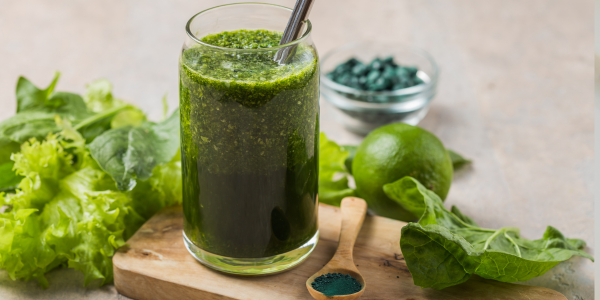Interestingly, Vitamin B12 was discovered through clinical studies on patients who suffered with pernicious anaemia; a confusing condition at the time, which was characterised by breathlessness and fatigue1.
Before the 1920s, pernicious anaemia was fatal, until the discovery of key B vitamins as therapeutic interventions to help support the disease.
During the studies, they found that the condition improved when patients ate large amounts of liver (a rich source of B12). Those studies sparked an interest in isolating and extracting B12 from liver to utilise its many health benefits2.
In 1948 a group of researchers successfully isolated Vitamin B12 from the liver, with synthesised versions dominating the market today.
Vitamin B12, also known as cobalamin, is a water-soluble nutrient which is crucial for a number of key bodily processes:
- A must-have nutrient for nerve health – The nutrient is needed for the production of myelin, which is a protective sheath surrounding nerve fibers, supporting healthy nerve signal transportation. Deficiency can lead to nerve damage, numbness and tingling in the extremities.
- Needed for the formation of healthy red blood cells – Helping to reduce the risk of anaemia, they also maintain the shape of red blood cells helping them to move through the body efficiently.
- A key nutrient for energy production – A common early sign of B12 deficiency is fatigue/lack of energy3
- Helps support mood regulation – Studies have shown that vitamin B12 deficiency is commonly linked to anxiety and mood disorders4.
Today, Vitamin B12 is readily available both in supplemental and food form for people from all walks of life with a range of health needs. This article will outline the best sources, what to look out for when choosing B12 supplementation in a crowded market, and particular groups which may need to pay a little more attention to this nutrient.
Food Sources of Vitamin B12
Organ meats can be described as nature's multivitamin. Liver contains the highest content of B12, as this nutrient is stored in the liver. A 100g serving of lamb liver, which contains the highest amount of B12 has an incredible 3,500% of the daily value of B12.
Lamb liver also contains high amounts of copper, selenium, iron, vitamin A & vitamin B2.
Seafood also contains high levels of vitamin B12:
Clams – Contain one of the highest levels of B12, with a single serving containing over 4000% of the daily value.
Sardines – Are a rich source of nutrients containing Vitamin B, omega 3, calcium, selenium, iodine and B12.
Tuna – A 100g serving of tuna contains the daily recommended intake of B12. It also contains Omega 3, and minerals including phosphorous, potassium and selenium.
Salmon & Trout – One of the richest sources of heart healthy omega 3 as well as B125.
Beef is another excellent source of B vitamins, with a grilled flat iron steak containing almost 500% of the daily value intake, along with more than 100% of the daily recommended intake of selenium and zinc.
Eggs are a versatile B12 powerhouse, containing protein, healthy fats and is rich in vitamins A & D6.
Milk & dairy products do tend to be high in B12, with low fat milk containing the highest amount with a cup providing the majority of your daily intake.
Nutritional yeast is a great option for those who eat a plant based/vegan or vegetarian diet. Nutritional yeast is commonly fortified with this nutrient, with two tablespoons covering your daily allowance7.
How to Choose the Best B12 Supplement
Many supplements on the market contain one of two types of vitamin B12; cyanocobalamin or methylcobalamin. Cyanocobalamin is a synthetic form of B12, whereas methylcobalamin is generally naturally occurring and a more bioavailable (absorbable) source of B12 as it has a methyl group attached to it.
Up to 40% of the population has a SNP (single nucleotide polymorphism) on the MTHFR gene. This gene is passed down through parents with a SNP on the gene reducing the enzyme’s activity. Defects on our MTHFR gene can reduce our ability to metabolise B9 & B12, it can also increase inflammation in the body and lead to potential birth defects8.
Where this becomes important is to supplement with the right form of B12, with methylcobalamin containing an added methyl group allowing it to be better absorbed by individuals with or without impaired MTHFR activity.
B12 is found in ranges usually above the recommended daily intake. This is due to many factors impairing the nutrients absorption like adequate stomach acid, life stage, additional requirements, those following a restrictive diet etc. A large dose is well tolerated and allows for enough of the nutrient to be utilised by the body. Much of the excess that we do not absorb is excreted through urine, making large doses safe.
However, you can get too much of a good thing. Whilst high doses are normal and considered safe, the NHS recommends not to exceed a limit of 2000 micrograms per day from B12 supplementation9.
It is also important to check your current supplement routine before adding B12. Many multivitamins and supplement complexes have added B12, so do ensure that if you do supplement the nutrient individually, that you remain under the recommended daily limit.
Who Should be Taking B12 Supplementation?
Dietary preferences also have a significant impact on B12 consumption. As shown, we ingest this nutrient primarily through animal food sources. If you are a vegetarian and more importantly, if you are vegan/eat a plant-based diet – then B12 supplementation is highly recommended.
Individuals with gastrointestinal disorders like Crohn’s disease, coeliac and conditions which affect digestion can hinder vitamin B12 absorption10.
Life stage also has a large impact on B12 levels. Pregnancy is a time in which many nutrients (like iron, choline, folate, omega 3 and calcium) are needed in higher amounts to meet the needs of a rapidly growing foetus. Vitamin B12 is also an important nutrient during this time as it contributes to foetal brain development as well as red blood cell formation11.
Older populations (those 60 years and older) should consider vitamin B12 supplementation due to reduced stomach acid12. As we get older, our own stomach acid production naturally declines, however we need adequate stomach acid to be able to absorb B12 from food, making supplementation a must have.
Where Can I Buy Vitamin B12?
If you’re looking for a good quality B12 supplement, then it is important to know what to look out for.
The supplement market can be full of B12 supplements which are poorly digested, contain a bunch of fillers and may also, as mentioned, not be in the correct form for optimal bioavailability (aka absorption and utilisation by the body).
To improve absorption do ensure that you find a B12 supplement which is void of artificial sweeteners, colours and preservatives. You can find out by always checking the label and the company website for additional information.
At Purolabs our B12 supplement simply contains “1000ug vitamin B12” in methylcobalamin form and is free from commonly added nasties like titanium dioxide, magnesium stearate, iron oxide, silicon dioxide, maltodextrin & palm oil.






















